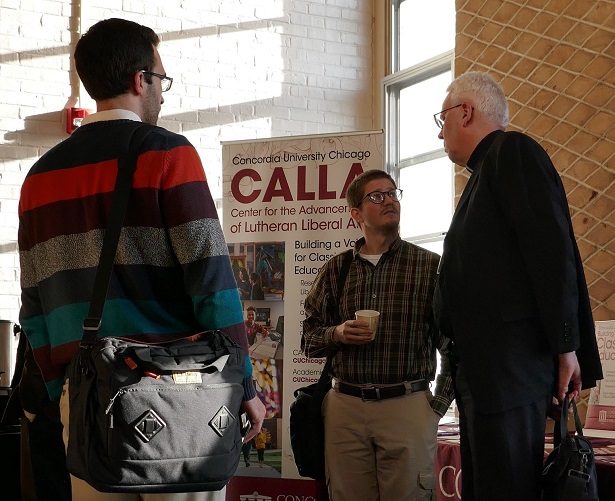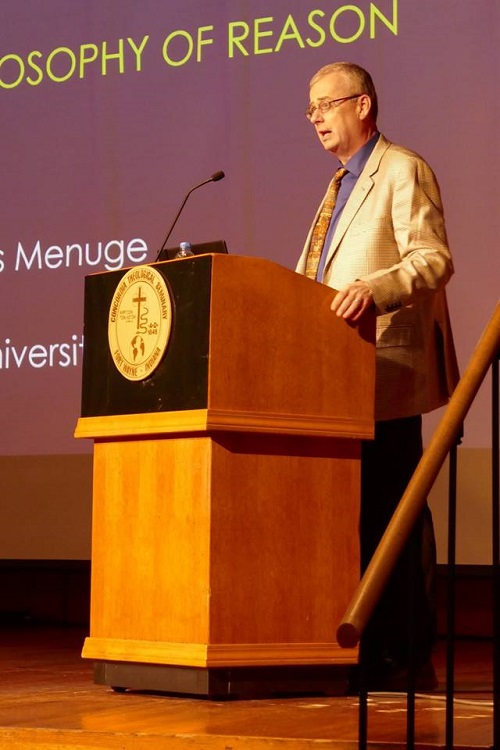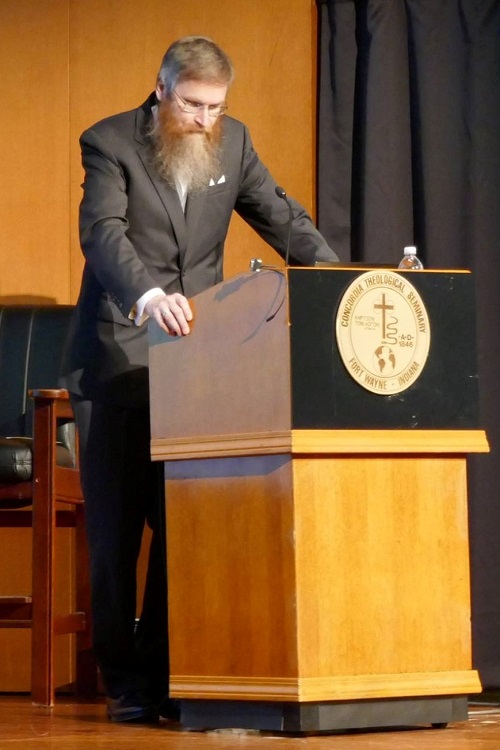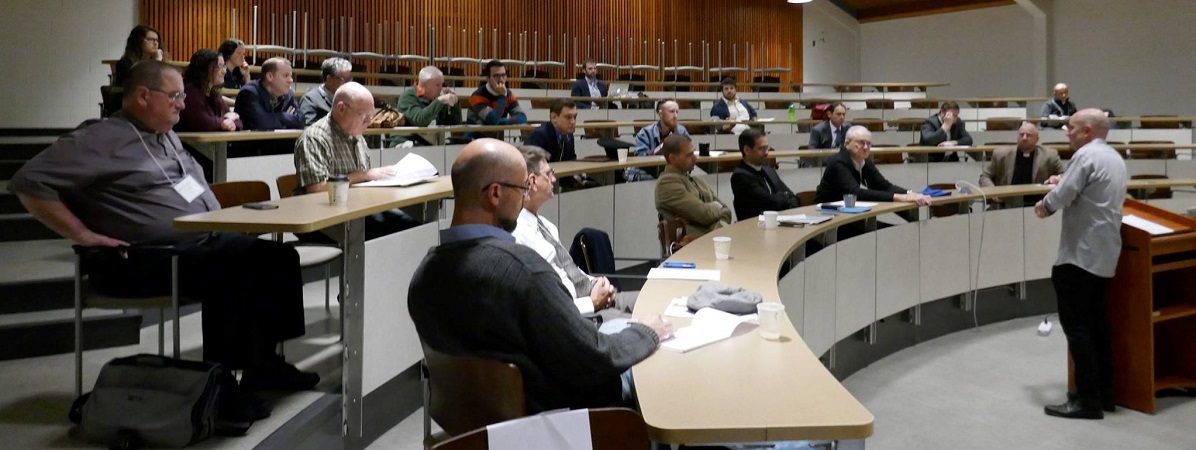
Lutheranism & the Classics V (“Arguing with the Philosophers”) has officially drawn to a close. The conference takes place every other year, serving as a two-day learning event for those who love the study of theology, the classics, and the classical languages; there was a lot of Latin both cited and quoted throughout the presentations. This year the conference drew over 130 attendees, about 40 of whom were CTSFW students.
Dr. Nordling, who heads the conference, opened by introducing the first plenary speaker, Dr. Angus Menuge (Professor and Chair of Philosophy at Concordia University Wisconsin, Mequon), who himself introduced this year’s topic by opening with a presentation on the Lutheran philosophy of reason.

He began by noting that Luther was known to speak harshly against Reason. “Frau Hulda…the devil’s prostitute,” Luther wrote in “Against the Heavenly Prophets (“Frau Hulda” was his way of personifying Reason), “can do nothing else but slander and dishonor what God does and says.”
However, in the “Disputation Concerning Man,” Luther also acknowledges that, “Philosophy or human wisdom defines man as an animal having reason…And it is certainly true that reason is the most important and the highest in rank among all things… It is the inventor and mentor of all the arts, medicines, laws, and of whatever wisdom, power, virtue, and glory men possess in this life…a kind of god appointed to administer these things in this life. Nor did God after the fall of Adam take away this majesty of reason, but rather confirmed it.”
Thus we conclude that Luther believed in natural reason, but recognized the limitations in it. That is, that:
1. Reason can judge earthly matters, but cannot judge in heavenly matters.
2. Reason can know God exists, but it does not know who He is.
3. Reason can argue for God, but (not knowing who He is) constructs idols.
4. Reason can apprehend the basic meaning of Scripture, but it cannot comprehend the mystery nor grasp its promises.
“Reason is a valuable servant,” Dr. Menuge said, “but it requires the right external input and guidance.”

The final keynote presentation by Dr. Roland Ziegler (The Robert D. Preus Associate Professor Systematic Theology and Confessional Lutheran Studies here at CTSFW) also spoke on this question of authority, and the use of reason in religion. You have the philosophers (“The patriarchs of heathens according to carnal wisdom,” Dr. Ziegler described them) who claim that philosophy must interpret Scripture, versus St. Paul, who says the mind must be captive to Scripture. 2 Corinthians 10:5:
“We destroy arguments and every lofty opinion raised against the knowledge of God, and take every thought captive to obey Christ.”
And so we have a clear answer to our argument with the philosophers. There is value in reason and philosophy, but: “Philosophy,” Dr. Ziegler explained, “has to be in submission to Holy Scriptures.”

The longer plenary presentation are not available, but you can still access and read the abstracts from the sectionals at https://www.ctsfw.edu/wp-content/uploads/2016/02/LC-V-Sectional-Papers.pdf. Dr. Sarah Byers and Dr. Christian Kopff were the other keynote speakers, though I was unable to attend Dr. Byer’s session to take notes (and Dr. Kopff had to cancel due to health issues; we prayed for him in chapel this morning). You can learn more about all four keynote speakers here: https://www.ctsfw.edu/ctsfw-events/lutheranism-the-classics/.
